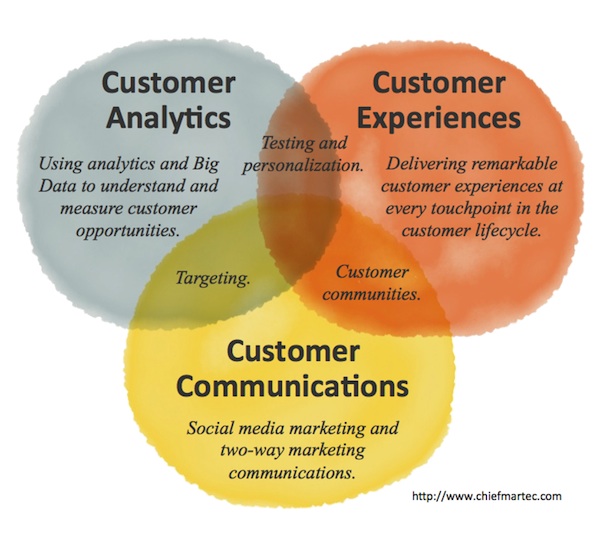There is certainly hype around ‘big data’, as there always has been and always will be about many important technologies or ideas – remember the hype around the Web? Just as annoying is the backlash anti big data hype, typically built around straw men – does anyone actually claim that big data is useful without analysis?
One unfair characterization both sides indulge in involves the role of intuition, which is viewed either as the last lifeline for data-challenged and threatened managers, or as the way real men and women make the smart difficult decisions in the face of too many conflicting statistics.
Robert Carraway, a professor who teaches Quantitative Analysis at UVA’s Darden School of Business, has good news for both sides. In a post on big data and decision making in Forbes, “Meeting the Big Data challenge: Don’t be objective” he argues “that the existence of Big Data and more rational, analytical tools and frameworks places more—not less—weight on the role of intuition.”
Carraway first mentions Corporate Executive Board’s findings that of over 5000 managers 19% were “Visceral decision makers” relying “almost exclusively on intuition.” The rest were more or less evenly split between “Unquestioning empiricists” who rely entirely on analysis and “Informed skeptics … who find some way to balance intuition and analysis.” The assumption of the test and of Carraway was that Informed skeptics had the right approach.
A different study, “Frames, Biases, and Rational Decision-Making in the Human Brain“, at the Institute of Neurology at University College London tested for correlations between the influence of ‘framing bias’ (what it sounds like – making different decisions for the same problem depending on how the problem was framed) and degree of rationality. The study measured which areas of the brain were active using an fMRI and found the activity of the the most rational (least influenced by framing) took place in the prefrontal cortex, where reasoning takes place; the least rational (most influenced by framing / intuition) had activity in the amygdala (home of emotions); and the activity of those in between (“somewhat susceptible to framing, but at times able to overcome it”) in the cingulate cortex, where conflicts are addressed.
It is this last correlation that is suggestive to Carraway, and what he maps to being an informed skeptic. In real life, we have to make decisions without all or enough data, and a predilection for relying on either data or intuition can easily lead us astray. Our decision making benefits by our brain seeing a conflict that calls for skeptical analysis between what the data says and what our intuition is telling us. In other words, intuition is a partner in the dance, and the implication is that it is always in the dance — always has a role.
Big data and all the associated analytical tools provide more ways to find bogus patterns that fit what we are looking for. This makes it easier to find false support for a preconception. So just looking at the facts – just being “objective” – just being “rational” – is less likely to be sufficient.
The way to improve the odds is to introduce conflict – call in the cingulate cortex cavalry. If you have a pre-concieved belief, acknowledge it and and try and refute, rather than support it, with the data.
“the choice of how to analyze Big Data should almost never start with “pick a tool, and use it”. It should invariably start with: pick a belief, and then challenge it. The choice of appropriate analytical tool (and data) should be driven by: what could change my mind?…”
Of course conflict isn’t only possible between intuition and data. It can also be created between different data patterns. Carraway has an earlier related post, “Big Data, Small Bets“, that looks at creating multiple small experiments for big data sets designed to minimize identifying patterns that are either random or not significant.
Thanks to Professor Carraway for elevating the discussion. Read his full post.




